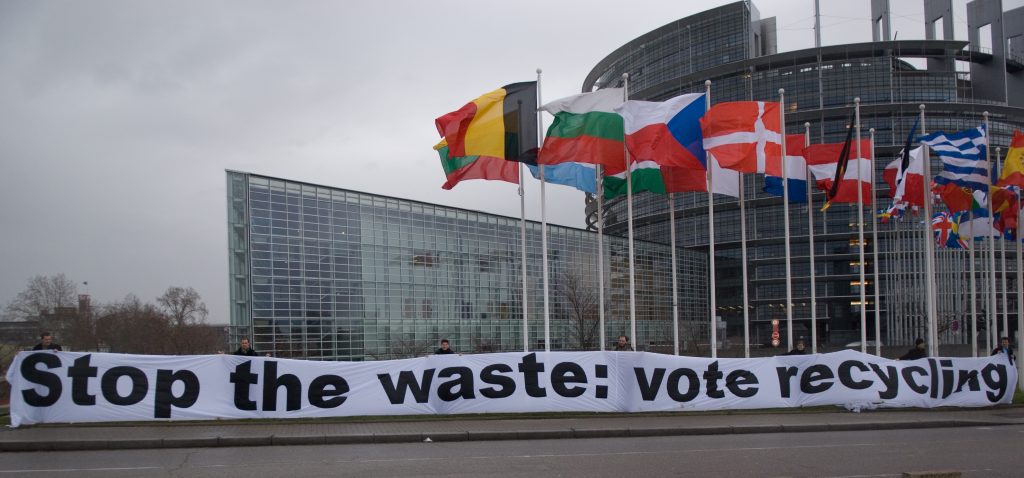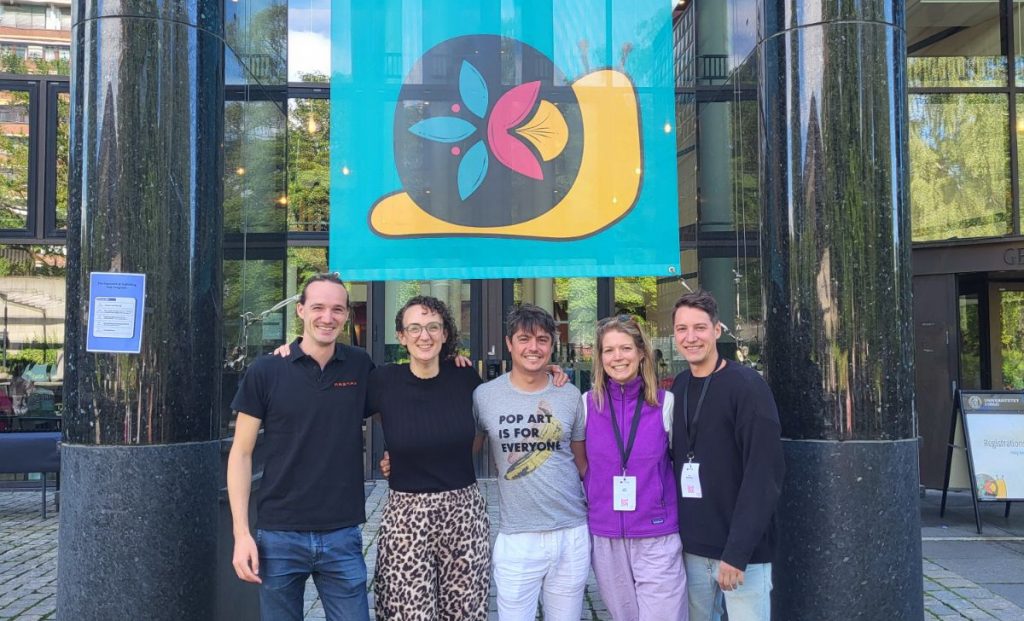Brussels, April 9 – The European Environmental Bureau and Friends of the Earth Europe have strongly welcomed yesterday’s vote in the European Parliament’s Environment Committee reasserting the need for EU-level targets on waste prevention and recycling. Voting on the Waste Framework Directive, an overwhelming majority favoured targets for Member States to stabilise waste generation by 2012 and to establish EU-wide recycling targets of 50 per cent for household waste and 70 per cent for business wastes by 2020 [1].
Nathalie Cliquot, EEB’s Waste Policy Officer, said: “We’re thrilled to see positive results from our long campaign to attain strong but achievable targets on waste prevention and recycling. EU-level targets will give a true sense of direction to all Member States, and create drivers for investments in resource efficient systems.”
It is now up to Member States in Council of Ministers discussions to accept the Committee’s position if they want to achieve an early agreement on the Directive by June [2].
A study prepared for EEB and Friends of the Earth Europe earlier this year [3] has shown significant climate benefits from EU recycling and prevention targets. For example the 50 per cent target for recycling household and similar wastes by 2020 could save emissions equivalent to more than 89 million tonnes of CO2 per year, the same as taking 31 million cars off the road.
Michael Warhurst of Friends of the Earth Europe said: “The climate and resource efficiency benefits of these recycling and prevention targets are substantial – it is now time for EU Member States to accept their importance so that they can become law. Citizens can help by contacting their Environment Minister through www.loverecycling.eu.”
The Environment Committee vote also repeated support for separate collection of materials, including biowaste, and for preferences for the recycling of biowaste and waste oils versus other methods of treatment. Unfortunately, the Committee narrowly approved the re-branding of certain municipal waste incinerators as “recovery”, despite little evidence that this would encourage better environmental performance of incinerators [4]. However, MEPS also accepted a two-year review clause to determine if re-branding results in improved energy performance of incinerators.
Michael Warhurst said: “This re-branding of slightly less inefficient incinerators as recovery is misguided and counter-productive, and we would expect that any future review of this measure will result in its deletion.”
Nathalie Cliquot commented, “With yesterday’s support for targets, separate collection and recycling of biowaste and oils, MEPs have taken another step toward creating the link between good waste management and better resource efficiency. This outcome brings us closer to a more sustainable European society.”
***
NOTES TO EDITORS:
[1] Proposed targets are 50 per cent by weight for household waste, 70 per cent for industrial, manufacturing, construction and demolition waste, all by 2020 except for those Member States where these targets would be particularly hard to reach. These would be allowed an additional 5 years.
[2] Member States are currently debating their views on these targets, which could result in a second reading agreement with Parliament by June. If this deal isn’t possible, the whole Parliament will vote its second reading position in mid-June and then Member States and Parliament will have to reach a compromise in the second half of 2008.
[3] The study was undertaken by German environmental consultancy, ?kopol, to assess the climate change reduction potential of recycling. “Climate change potentials of EU recycling targets” can be found in the ‘What’s new?’ section of the EEB website at: http://www.eeb.org/activities/waste/Index.htm
For a more detailed analysis of the review of the Waste Framework Directive, see the following policy briefing and web sites: http://www.foeeurope.org/publications/2007/FoEE_EEB_WasteBrief_Sep07.pdf
http://www.foeeurope.org/activities/waste_management/
http://www.eeb.org/activities/waste/Index.htm
[4] The Environment Agency for England and Wales comment on re-branding of incinerators states, “It does not appear likely that a lower efficiency target to be classed as ‘recovery’ would act to promote better waste incineration technologies, or would facilitate achievement of the landfill diversion targets.” Excerpt from Response To The Consultation Paper By The Department For Environment Food And Rural Affairs And Welsh Assembly Government: Proposal For A Directive Of The European Parliament And The Council On Waste”, Environment Agency for England and Wales, January 2007.









